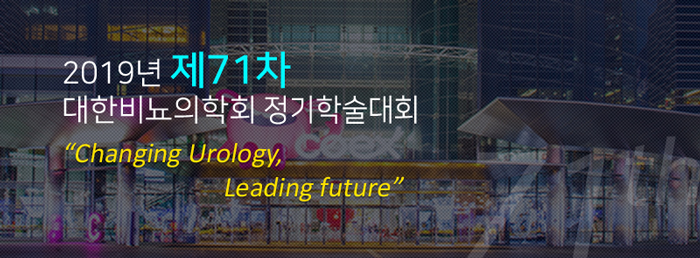|
Pediatrics(구연)
|
Oral Session8 / Pediatrics (O-084)
Rm.203
10월 30일(수) 16:00-17:00
|
|
|
소아 환자에서 단일신 역류 수술의 결과 |
| 연세대학교 의과대학 비뇨의학교실¹ |
| 이용승¹, 김상운¹, 한상원¹ |
Introduction
Anti-reflux surgery (ARS) causes temporary ureteral swelling. ARS in the solitary kidney (SK) is challenging for urologists, as contralateral renal compensation is unavailable. We analyzed outcomes of ARS in SK.
Methods and materials
From 2007 to 2018, a retrospective study was conducted on children with SK (less than 5% of contralateral differential renal function) underwent ARS. Postoperative development of acute kidney injury (AKI), AKI stage was investigated. The AKI stage was analyzed by Kidney Disease Improving Global Outcomes(KDIGO) classification.
Results
ARS was performed on 33 SKs. Endoscopic injection therapy (EIT) was performed in 18 and open or transvesicoscopic ureteroneocystostomy (UNC) was performed in 15. Stage 3 AKI occurred in 4 patients and stage 2 in 2 patients including 1 after EIT and 5 after UNC. In 5 patients, temporary percutanous nephrostomy or ureteral stenting were required, while one patient recovered after conservative management. There was no increase in postoperative CKD stage in all patients compared to preoperative level. Postoperative hydronephrosis was developed or aggravated in 2 children (11.1%) after EIT and 4 children (26.7%) after UNC. During median 3.7(IQR 2.2-5.4)months of follow-up, febrile UTI occurred 1 case after EIT and 2 cases after UNC.
Conclusions
AKI frequently occurred after ARS in the solitary kidney. The frequency of AKI after UNC was higher than that of EIT but without significant difference. All cases were resolved by temporary stenting or percutaneous nephrostomy, which did not cause long-term renal dysfunction.
|
|
keywords : Solitary kidney, vesicoureteral reflux, anti-reflux surgery |
|

